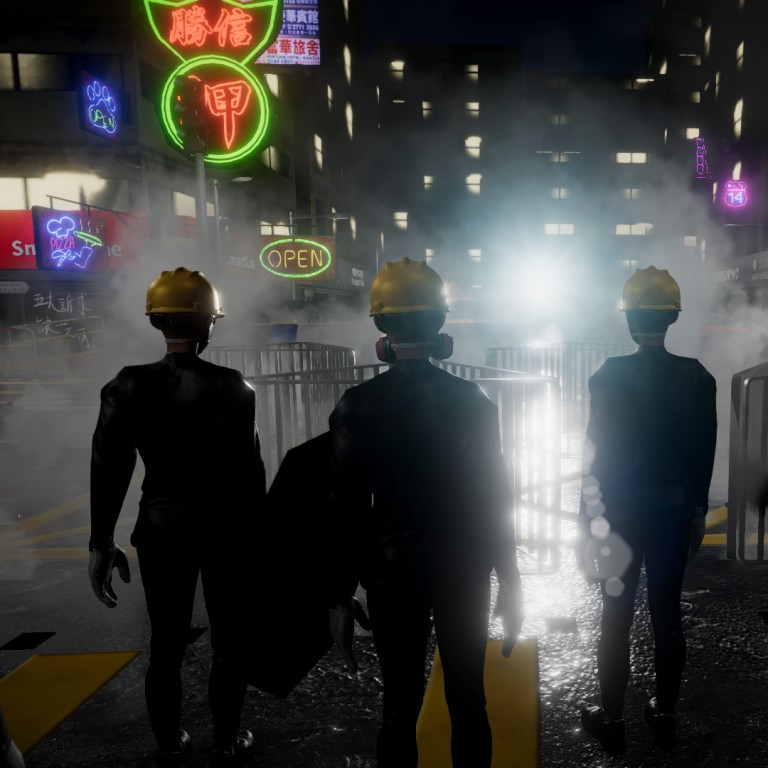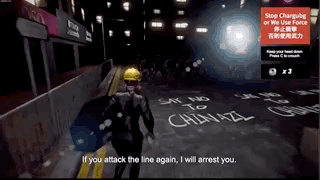
A new Steam game lets you fight as a Hong Kong protester
Liberate Hong Kong was inspired by Blizzard’s Blitzchung controversy, and now it’s making Steam the next battleground for protesters
After almost five months, scenes of protesters running from riot police through streets filled with makeshift barricades are all too familiar to anyone living in Hong Kong. Now, an upcoming VR game aims to let people outside the city experience life as a front-line protester.

In its current form, Liberate Hong Kong has very limited gameplay elements. You can only explore a limited area, crouch to avoid rubber bullets, and throw tear gas canisters. (You get one point for tossing the canisters at the police.)
You also can’t win the game, but you can certainly lose, either by being shot by a rubber bullet or by being arrested.

One of the reasons the game is so bare is that it was created so quickly. The developers only started making the game in the last month, being inspired by Blitzchung’s Hearthstone protest.
“We saw that it only took Blitzchung chanting the slogan for five scant seconds and how the game developer responded subsequently to have such a huge effect,” said the game’s spokesperson, who wishes to remain anonymous.
“So we started to ask ourselves: What if there’s an actual product that centers on the protests? How would the gaming community respond in that case? That is the initial motivation of making this game,” she said.
The developer hopes it will keep the global gaming community talking about the Hong Kong protests. But they also said they wanted to release the game to test the boundaries.
“We also want to know where the bottom line is,” the spokesperson said. If the game isn’t approved, “it would indirectly reflect how much control China has over the whole gaming community.”
(Abacus is owned by the South China Morning Post, which is owned by Alibaba, an affiliate of Alipay owner Ant Financial.)

But Steam might also be more permissive than Google. The platform has long prided itself on its liberal content policies, which allow “everything” except for games Valve -- the company behind Steam -- decides are “illegal, or straight up trolling.”
This laissez-faire approach has gotten Steam into trouble before. Just earlier this year, it found itself in hot water after a game called Rape Day -- in which gamers play as a sociopath who rapes women during a zombie apocalypse -- was listed on the platform. The ensuing backlash was big enough to get the game pulled by Steam before its launch, which has caused some people to question Valve’s dedication to its own rules.
While games about the Hong Kong protests are a far cry from a game that arguably glorifies rape, Valve has shown that it has a limit. Other companies with a significant consumer base in China have folded under pressure before.

But no matter what Valve does, it seems there’s no solution that will appease gamers both inside and outside China.
For more insights into China tech, sign up for our tech newsletters, subscribe to our Inside China Tech podcast, and download the comprehensive 2019 China Internet Report. Also roam China Tech City, an award-winning interactive digital map at our sister site Abacus.

